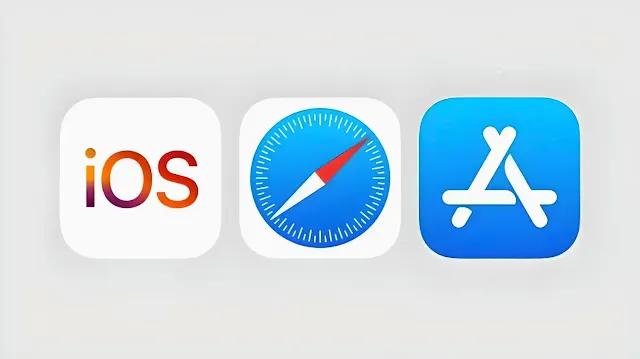Apple to Introduce Major Changes to iOS Following EU's Digital Markets Act
In a significant move driven by the European Union's Digital Markets Act (DMA), Apple has unveiled plans to implement substantial alterations to its iOS platform and the App Store ecosystem. These changes, set to roll out with the iOS 17.4 update in March, aim to enhance consumer choice and competition within the digital marketplace.
Enhanced Browsing Experience:
One of the notable adjustments involves browsing capabilities on iOS devices. Currently, users can opt for non-Safari browsers, albeit with the constraint of using Safari's WebKit rendering engine. However, under the forthcoming updates, all browsers will have the freedom to utilize their preferred rendering engines. Additionally, EU iPhone users will encounter a browser choice screen upon their initial launch of Safari, empowering them to select their preferred browsing application.Introduction of Alternative App Stores:
Perhaps the most significant development is Apple's decision to permit alternative app stores on iOS devices. While acknowledging potential risks, the tech giant will implement a "baseline review" process for all apps, irrespective of their distribution channel. This review, incorporating automated checks and human oversight, will furnish users with concise descriptions of app functionalities before download.Safety Measures and Developer Guidelines:
To safeguard users and app developers, Apple will establish criteria for "marketplace developers" of alternative app stores, along with additional safeguards against malware. However, the company concedes its limitations in addressing certain risks, such as fraudulent or objectionable content, under the DMA-driven provisions.NFC Access for Payment Apps:
Furthermore, NFC functionality on iPhones in the EU will be expanded, enabling alternative wallet and banking apps to utilize tap-to-pay features and serve as the default payment method for mobile transactions.App Store Payment Options:
Apple will introduce new payment options within apps, including the integration of payment service providers and the facilitation of transactions via external websites. Users will receive notifications when apps employ alternative payment processing methods, ensuring transparency and adherence to guidelines.Revised Fee Structure:
In line with DMA requirements, iOS apps on the App Store in the EU will incur a commission of either 10% or 17% on digital transactions, with additional fees for core technology usage. The majority of developers are expected to see reduced fees, with only a small fraction subject to the core technology fee.Verdict:
Apple's forthcoming iOS updates signify a significant shift towards fostering competition and consumer choice within the digital marketplace, as mandated by the EU's Digital Markets Act. These changes, encompassing browser flexibility, alternative app store access, and revised payment structures, aim to create a more dynamic and user-centric ecosystem for iOS users and developers alike.(Source)


